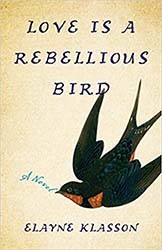Howard Akler’s Splitsville is a succinct novel that offers a glimpse into one of the largest civic battles in Toronto’s history. In short passages, Splitsville explores the relationship of Hal Sachs and Lily Klein, the owner of a bookstore and a high school civics teacher respectively; each of whom work to stop the erection of the Spadina Expressway, a six-lane highway which was going to divide Toronto so that commuters would have had easier access to downtown. In doing so, they fall in love, fall out of love, and argue over what it means to be an engaged citizen.
Akler gives two primary perspectives of the city: one from 1975 with Klein and Sachs during the time when the Expressway was being planned, and one from the present with Sachs’ nephew, Aitch, who looks to discover the intimacies of Sachs’ life. Through the latter half of the novel, Aitch bikes around the city, giving the reader placid images of present-day Toronto. These passages are written in brief, concrete prose, and they have an ambient grace, which is depicted in sharp turns and passing images: “You ride on: smooching teenagers in a parkette, KFC stink. You speed away from eleven herbs and spices, up a potholed laneway with Day-Glo graffiti on every second garage door.” Here, the city is a blur. It is alive, in motion, and yet it only acts as a backdrop to Aitch’s actions. Contrasted with Sachs and Lily’s passages, Splitsville shows how the defining event of a city can be forgotten, and that what was so vehemently fought for can become so worn into the fabric of day-to-day life that it becomes invisible.
The focus on Toronto, however, at times took the focus off Splitsville’s characters. Klein and Sachs are well-drawn, but Aitch is relatively static. His biking through the city, his investigation into Sachs’ life, and his nerves about becoming a new parent are compelling, but his wants and fears felt unexplored.
Splitsville is written in spare passages that cut from one perspective to another, from one time to another. Although these passages don’t have an obvious logic to them, they propel the narrative forward and the erratic jumps in time create pockets of tension that further engage the reader.
Splitsville is an interesting look into the intricacies of a grassroots movement and Toronto’s history.
Benjamin Selesnick is a psychotherapist in New Jersey. His writing has appeared in Barely South Review, Lunch Ticket, Tel Aviv Review of Books, and other publications. He holds an MFA in fiction from Rutgers University-Newark.





